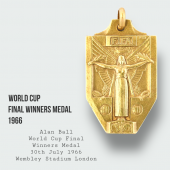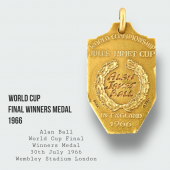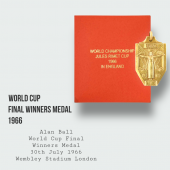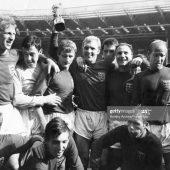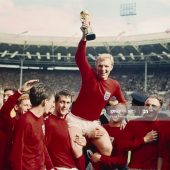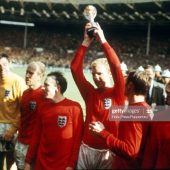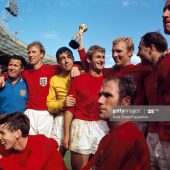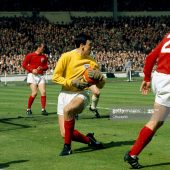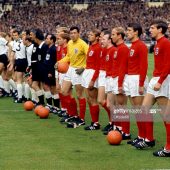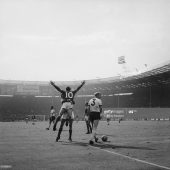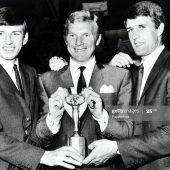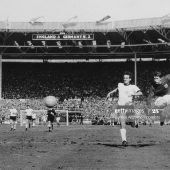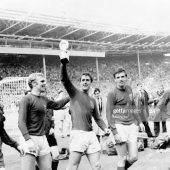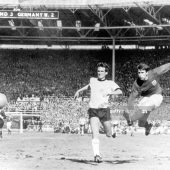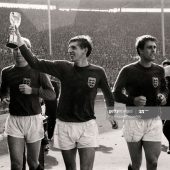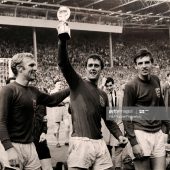Alan Ball World Cup Final 1966 Winners Medal
INCREDIBLY RARE AND HISTORIC ITEM
ALAN BALL'S 1966 WORLD CUP FINAL ORIGINAL WINNERS MEDAL
ORIGINAL MEDAL RECEIVED BY ALAN AFTER THE 1966 WORLD CUP FINAL V WEST GERMANY ON THE 30TH JULY 1966
MEDAL HAS BEEN ENGRAVED WITH HIS NAME IN THE CENTRE - ALAN JAMES BALL
ALSO 'PEKA' AND '0.750' WITH 'FIFA' TO FRONT 17MM HIGH
MEDAL ALSO COMES WITH ORIGINAL BOX -
WORLD CHAMPIONSHIP
JULES RIMET CUP
1966
IN ENGLAND
Despite being in a struggling Blackpool team, Ball's industry, stamina and distribution were noticed by England manager Alf Ramsey, who gave him his international debut on 9 May 1965 in a 1–1 draw with Yugoslavia in Belgrade, three days before his twentieth birthday. Ramsey was preparing for the World Cup a year later, which England was to host, and was developing a system whereby England could deploy midfielders with a defensive and industrious bent, something which was not wholly guaranteed from conventional wide men. As a result, Ball became a useful tool for Ramsey to use – able to play conventionally wide or in the centre but still in possession of the energy to help out his defence when required.
Ball was the youngest member of the squad of 22 selected by Ramsey for the tournament, aged only 21. Though England as a team emerged collectively heroic from the tournament, Ball was one of many players regarded as an individual success, especially as he was one of the more inexperienced charges with no proven record at the very highest level. Indeed, he, Geoff Hurst and Martin Peters emerged with enormous credit and eternal acclaim from the competition – and all of them were still only in single figures for caps won by the time they were named in the team for the final against West Germany.
The 98,000 crowd at Wembley witnessed a magnificent personal performance from Ball. Full of running, he continued to work and sprint and track back while teammates and opponents alike were out on their feet. With fewer than 15 minutes to go, he won a corner on the right which he promptly took. Hurst hit a shot from the edge of the area which deflected into the air and down on to the instep of Peters, who rifled England 2–1 ahead. The Germans equalised with seconds to go, meaning that the game went into extra time. Somehow, this instilled extra bounce into Ball's play and the image of his continuous running round the Wembley pitch, socks round his ankles, is one of the most enduring of the occasion. It was his chase and low cross which set up Hurst's massively controversial second goal, and England's third; he was also sprinting upfield, unmarked and screaming for a pass, as Hurst took the ball forward to smash his historic hat-trick goal with the last kick of the game. Ball returned to a civic reception in Walkden, Lancashire following the World Cup success, where he lived with his parents and sister. Ball's appearance in the final marked the last occasion on which a Blackpool player received a full England cap.
RARE , HISTORIC AND VERY BEAUTIFUL ITEM FROM THE 1966 ENGLAND LEGEND
MUSEUM EXAMPLE ITEM
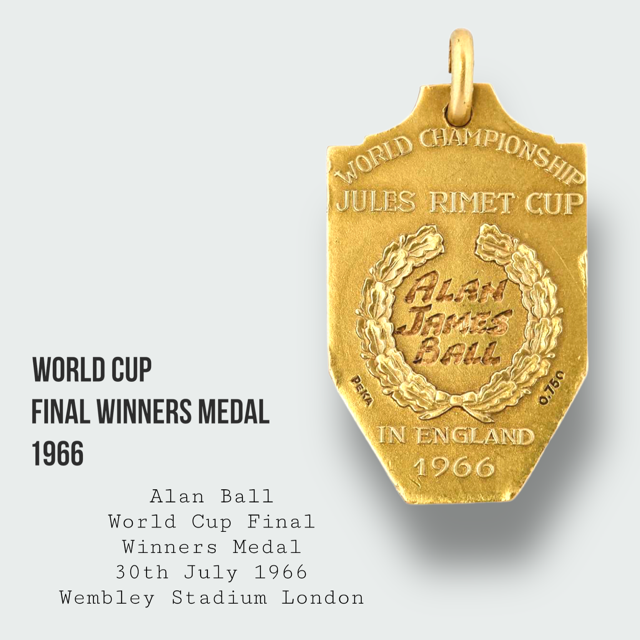
out of Stock
World Cup Final
England
v
West Germany
30th July 1966
Wembley

